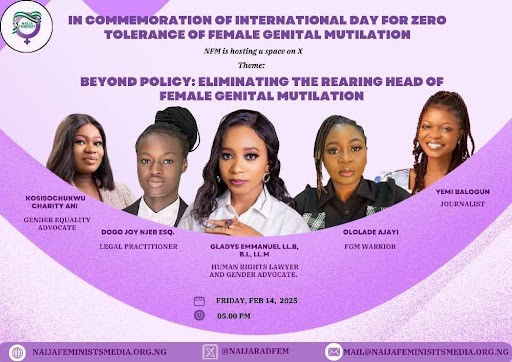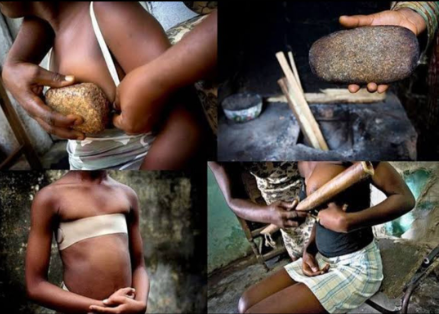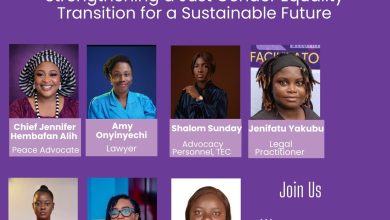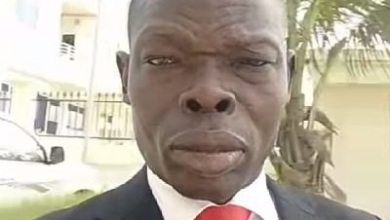
|
Getting your Trinity Audio player ready...
|
On Friday, Feb. 14, 2025, Naija Feminists Media (NFM) hosted an X (formerly Twitter) space titled “Beyond Policy: Eliminating the Rearing Ahead of Female Genital Mutilation” to mark the International Day of Zero Tolerance of FGM. Experts from law, journalism, and advocacy gathered to discuss the persistent practice of Female Genital Mutilation (FGM) in Nigeria, its cultural and legal challenges, and the need for stronger enforcement and media attention.
The discussion, moderated by Nkechi Igwebuike, NFM’s communications officer, featured leading experts as speakers: Gender Equality Advocate and founder of “Myself Defense Ng” Kosisochukwu Charity Ani, Legal Practitioner Dogo Joy Njeb, Human Rights Lawyer and Gender Advocate Gladys Emmanuel, Journalist Yemi Balogun, and Ololade Ajayi, an FGM survivor and founder of DOHS Cares Foundation. It also had over 845 listeners tuned in.
Here is a brief recap of what was mentioned during the space.
Why FGM Persists Despite Campaigns
Yemi Balogun explained why FGM remains widespread despite numerous awareness campaigns. She emphasised that a lack of stringent laws and effective partnerships has allowed FGM to persist, calling for stronger enforcement mechanisms.
“This practice is systemic. Many communities believe it is deeply rooted in tradition and necessary for a girl’s purity,” she said.
A Survivor’s Story
Ololade Ajayi shared her personal experience as an FGM survivor. She recounted how FGM impacted her mental and sexual health, stating, that many survivors experience difficulties during childbirth, and for her, she had to undergo a C-section because she could not dilate beyond 2 cm. She also said survivors also find it difficult to climax during sex. Ololade’s advocacy stems from her lived experience, which she now channels into raising awareness and supporting survivors. “I was a baby when it happened in my community in Ekiti State. I didn’t realise the full effects until my teenage years,” she said.
Legal Barriers and Weak Enforcement
Joy Njeb, a legal practitioner, outlined Nigeria’s legal framework against FGM. She said that the ‘Prevention of Violence Against Women Act’ criminalizes FGM with a maximum of four years’ imprisonment or a ₦200,000 fine.
However, she pointed out enforcement challenges, adding, “Many victims undergo FGM as minors, making legal action difficult. The penalties are also too lenient to serve as a deterrent.”
The Role of Media in Ending FGM
Kosisochukwu Ani stressed the importance of media in combating FGM. She urged the media to shift from statistics to storytelling. Traditional and social media should focus on amplifying survivors’ voices and educating communities,” she said. Kosisochukwu also called for more whistleblower mechanisms to expose perpetrators.
Cultural and Economic Factors Driving FGM
Gladys Emmanuel highlighted cultural resistance, social stigma, and economic incentives as major drivers of FGM. She said that in some communities, refusing to circumcise a girl leads to ostracization. For some women, FGM is also a source of livelihood. She noted that even educated Nigerians in the diaspora bring their daughters home to undergo FGM, reinforcing the need for broader international advocacy.
Increasing Media Coverage on FGM & Collaborations
The speakers called for a multi-dimensional approach to ending FGM. Yemi urged journalists to prioritise FGM reporting. “We need investigative stories, stronger alliances with NGOs, and dedicated newsroom discussions,” she said. Ololade emphasised the psychological trauma many survivors endure, and Joy reiterated the need for stronger legal protections., while Simbiat Bakare advised that stakeholders should learn from history in ending misogynistic practices and bring it to the forefront of fighting FGM.






